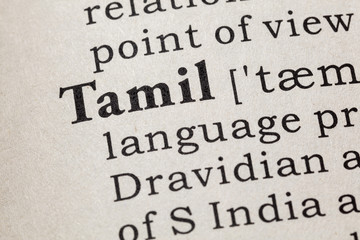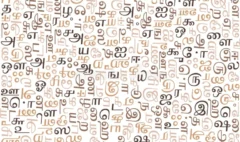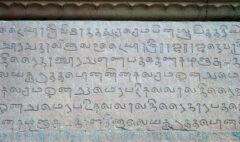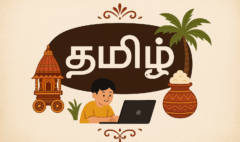Tamil Vocabulary for the Hospital and Medical Emergencies
Tamil Vocabulary for the Hospital and Medical Emergencies
Tamil Vocabulary for the Hospital and Medical Emergencies: A Vital Guide
In life’s most critical moments, clear and effective communication can be the difference between a good outcome and a bad one. A medical emergency is, without a doubt, one of the most stressful and vulnerable situations a person can face. This stress can be magnified tenfold if you are in a place where you cannot communicate your needs clearly in the local language. For anyone living in or traveling through Tamil Nadu, having a basic but functional knowledge of the Tamil vocabulary for a hospital and for medical emergencies is an absolutely essential aspect of health and safety in Tamil Nadu. This is a situation where knowing the right words is not just a convenience; it is a necessity.
This guide is designed to be a vital and practical resource. We will provide you with the most important hospital phrases in Tamil and the core vocabulary you’ll need to navigate medical emergencies Tamil-style. This is a more advanced and urgent set of vocabulary than for a standard doctor visit Tamil. Our hope is that you will never need to use these phrases, but being prepared for the worst-case scenario is a fundamental part of responsible travel and living. For parents, teaching some of these basic words to your children can also be an important part of their safety education.
The Most Critical Phrases: Getting Help Immediately
In an emergency, you need to get help fast. These are the most important phrases to memorize.
- “Help!” – “உதவி!” (Utavi!)
- “Help me!” – “எனக்கு உதவுங்கள்!” (Eṉakku utavuṅkaḷ!)
- “It’s an emergency.” – “இது ஒரு அவசரம்.” (Itu oru avacaram.)
- “Call an ambulance!” – “ஒரு ஆம்புலன்ஸை கூப்பிடுங்கள்!” (Oru āmpulaṉsai kūppiṭuṅkaḷ!)
- “Call the doctor!” – “மருத்துவரை அழைக்கவும்!” (Maruttuvarai aḻaikkavum!)
- “Where is the nearest hospital?” – “அருகில் உள்ள மருத்துவமனை எங்கே இருக்கிறது?” (Arukil uḷḷa maruttuvamaṉai eṅkē irukkiṟatu?)
- “He/She is unconscious.” – “அவர்/அவள் மயக்கத்தில் இருக்கிறார்.” (Avar/Avaḷ mayakkattil irukkiṟār.)
- “He/She is not breathing.” – “அவர்/அவள் சுவாசிக்கவில்லை.” (Avar/Avaḷ cuvācikkavillai.)
- “There has been an accident.” – “ஒரு விபத்து நடந்துவிட்டது.” (Oru vipattu naṭantuviṭṭatu.)
At the Hospital (மருத்துவமனை – Maruttuvamaṉai)
Once you have arrived at the hospital, you will need to navigate the different departments and communicate with the staff.
Key Places and People:
- Hospital – மருத்துவமனை (Maruttuvamaṉai)
- Emergency Room (ER) – அவசர சிகிச்சைப் பிரிவு (Avacara cikiccip piṟivu)
- Doctor – மருத்துவர் (Maruttuvar)
- Nurse – செவிலியர் (Ceviliyar)
- Patient – நோயாளி (Nōyāḷi)
- Pharmacy – மருந்தகம் (Maruntakam)
Communicating at the Reception:
- “I need to see a doctor immediately. It’s an emergency.” – “நான் உடனடியாக ஒரு மருத்துவரைப் பார்க்க வேண்டும். இது ஒரு அவசரம்.” (Nāṉ uṭaṉaṭiyāka oru maruttuvaraip pārkka vēṇṭum. Itu oru avacaram.)
- “My [family member] is very sick.” – “என் [family member] மிகவும் உடல்நிலை சரியில்லாமல் இருக்கிறார்.” (Eṉ [family member] mikavum uṭalnilai cariyillāmal irukkiṟār.)
Describing a Medical Emergency
Being able to give a clear and concise description of the problem is crucial. Here is some of the most important vocabulary for common emergencies.
Sudden Illness:
- “He/She is having a heart attack.” – “அவருக்கு மாரடைப்பு ஏற்பட்டுள்ளது.” (Avarukku māraṭaippu ēṟpaṭṭuḷḷatu.)
- “He/She is having a seizure.” – “அவருக்கு வலிப்பு வந்துவிட்டது.” (Avarukku valippu vantuviṭṭatu.)
- “He/She is having difficulty breathing.” – “அவருக்கு மூச்சு விடுவதில் சிரமம் இருக்கிறது.” (Avarukku mūccu viṭuvatil ciramam irukkiṟatu.)
- “Severe pain” – கடுமையான வலி (kaṭumaiyāṉa vali)
Sentence: “எனக்கு கடுமையான நெஞ்சு வலி இருக்கிறது.” (Eṉakku kaṭumaiyāṉa neñcu vali irukkiṟatu.) – “I have severe chest pain.” - “Severe bleeding” – அதிக இரத்தப்போக்கு (atika rattappōkku)
Sentence: “அவருக்கு தலையில் அதிக இரத்தப்போக்கு.” (Avarukku talaiyil atika rattappōkku.) – “He is bleeding a lot from his head.”
Injuries (காயங்கள் – Kāyangaḷ):
- Accident – விபத்து (Vipattu)
- Injury – காயம் (Kāyam)
- Wound – புண் (Puṇ)
- Broken bone / Fracture – எலும்பு முறிவு (Elumpu muṟivu)
Sentence: “என் கை எலும்பு முறிந்துவிட்டது என்று நினைக்கிறேன்.” (Eṉ kai elumpu muṟintuviṭṭatu eṉṟu niṉaikkiṟēṉ.) – “I think my arm bone is broken.” - Burn – தீக்காயம் (Tīkkāyam)
- Head Injury – தலையில் காயம் (Talaiyil kāyam)
Allergic Reactions:
- “I am allergic to [substance].” – “எனக்கு [substance]-ஆல் ஒவ்வாமை இருக்கிறது.” (Eṉakku [substance]-āl ovvāmai irukkiṟatu.)
- “He/She was bitten by a snake/insect.” – “அவரை ஒரு பாம்பு/பூச்சி கடித்துவிட்டது.” (Avarai oru pāmpu/pūcci kaṭittuviṭṭatu.)
Giving Your Medical Information
You may be asked for some basic information.
- “What is your name?” – “உங்கள் பெயர் என்ன?” (Uṅkaḷ peyar eṉṉa?)
- “How old are you?” – “உங்கள் வயது என்ன?” (Uṅkaḷ vayatu enṉa?)
- “Do you have any pre-existing conditions?” (e.g., diabetes, high blood pressure) – “உங்களுக்கு முன்பே ஏதேனும் நோய் இருக்கிறதா?” (Uṅkaḷukku muṉpē ētēṉum nōy irukkiṟatā?)
- Diabetes – நீரிழிவு நோய் (Nīriḻivu nōy)
- High Blood Pressure – உயர் இரத்த அழுத்தம் (Uyar ratta aḻuttam)
Conclusion: A Vocabulary of Preparedness
No one ever wants to be in a situation where they have to use the words for a medical emergency. However, being prepared is a crucial part of responsible living and travel. Learning these essential hospital phrases in Tamil is a small investment of time that can make an enormous difference in a critical situation. This vocabulary for medical emergencies Tamil is more than just a language lesson; it is a tool for empowerment. It is the language that allows you to ask for help, to describe a problem clearly, and to be a more effective advocate for yourself or your loved ones in a time of need. It is a vital component of ensuring your health and safety in Tamil Nadu.











